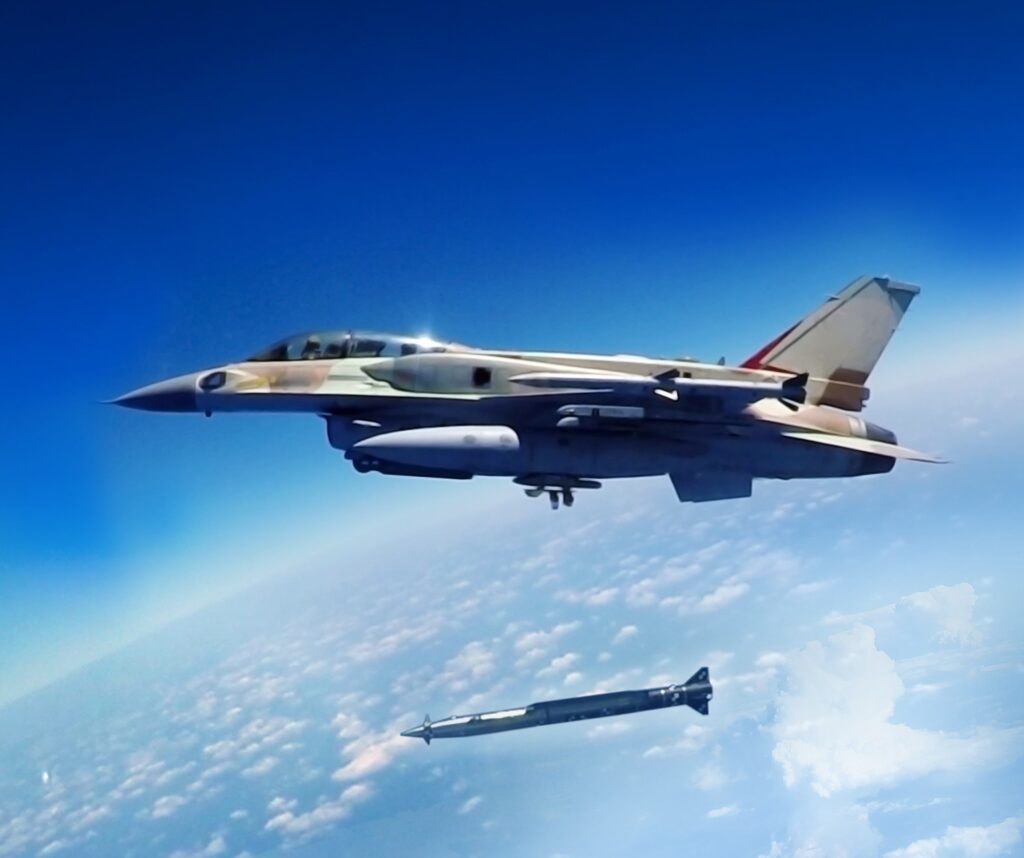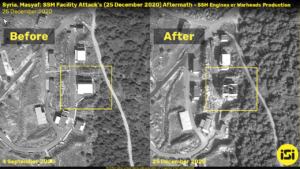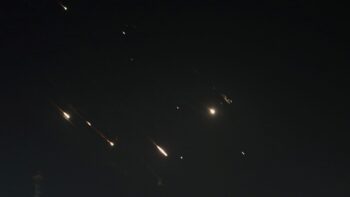
The IAI Rampage, launched from an F-16. is a stand-off munition which could see more use in Syria. (IAI)
TEL AVIV: Defense sources say the Israeli military is planning to change its tactics in Syria to revolve around long-range standoff munitions as opposed to air strikes, following a new Russian policy to use its higher-end air defense systems capable of shooting down Israeli jets over Syrian airspace.
The change follows an announcement late last week by Rear Adm. Vadim Kulit, the head of the Russian military reconciliation center in Syria, who said in a TV interview that the Russian forces assisted the Syrians in intercepting four missiles launched by Israeli F-16s — the first time Russian assistance was given to counter Israeli military operations.
Kulit said a Russian BUK 2ME, known in NATO circles as the SA-17 Grizzly, was used; the system is a medium-range advanced defense missile complex (ADMC) designed and manufactured by Almaz-Antey, primarily for the Russian Army. That system, which is operated directly by the Russian military, had not previously been used against Israeli assets; while the Syrians operate older anti-aircraft weapons, they have not been particularly successful in the past.
Israeli sources confirmed that the BUK 2ME was used for the first time against Israeli missiles, raising fears that Israeli pilots could be targeted as well. As a result, military leadership here is planning to shift operations almost entirely to long-range strike weapons.
Israel’s military does not comment on reports of specific strikes in Syria, but according to foreign media, there have been hundreds of strikes against Iran-linked military targets in Syria over the years. Jerusalem fears Iranian entrenchment on its northern frontier, and it has repeatedly struck Iran-linked facilities and weapons convoys destined for Hezbollah. Israel has used standoff weapons in the past, but the majority of the attacks have been performed by weapon systems flown in close to targets.
Compounding the situation is a change in the relationship between Russia and Israel. For the majority of the conflict in Syria, Israel and Russia have maintained a hotline that allowed the Israeli military to alert Russian forces of incoming strikes, which were aimed at Syrian forces backed by Moscow; generally, sources say, Russia was given two to three minutes of warning before an attack in order to remove their personnel in the area, and in some cases missions were aborted over fears of striking Russian forces.
However, Russian officials are now being quoted in regional media as saying that deconfliction line no longer exists, tying the change directly to the electoral loss of former Prime Minister Benjamin Netanyahu, who had a good working relationship with Russian President Vladimir Putin; Israeli sources here are also saying communications through the line have effectively stopped.
Combined, the lack of the active hotline and the activation of Russian anti-aircraft weaponry is sending a message to Jerusalem that Israeli forces are now officially at risk.
“Russia has decided to end the Israeli freedom of action over Syria.” Dr. Mordechai Kedar, an Israeli senior expert on Middle Eastern issues told Breaking Defense. He added that Moscow want to portray Syria as a functioning country to start pumping funds in the effort to rebuild the ruined country, which is of strategic and economic use for Moscow.

ISI photography captures the before and after results of a Syrian strike, believed to be by Israeli forces. (ISI)
“The Israeli frequent air strikes on targets in Syria do not help to build the desired image,” Kedar noted. “This is a very [big] warning sign to Israel.”
It is expected that Israeli will use Lebanese air space to launch weapons from its air platforms, while also upping the use of ground-based systems launching from the Golan heights.
Israeli has a number of options for long-range strike capabilities. One, which Russian media claims has been used recently, is the Rampage weapon, developed jointly by Israeli Military Industries Systems (IMI) recently acquired by Elbit systems and Israel Aerospace Industries (IAI). The Rampage, at 570 kg and 4.7 meters long, is marketed by the companies as a penetrating system designed for use against infrastructure, such as command and control centers.
Another option for Israeli is the Rafael Spice family of smart bombs, including the 1,000 and 2,000 lbs variants. The SPICE-1000 has a range of 100 kilometers, while the SPICE-2000 has a range of 60 kilometers.
Rafael also recently unveiled a new system, known as the ROCKS, a 1.3 ton weapon armed with a 360 kg warhead. The company has not said exactly how much the weapons range is.
Navy jet trainer fleet operations remain paused after engine mishap
One week after the incident, a Navy spokesperson says the service is continuing to assess the fleet’s ability to safely resume flight.


























